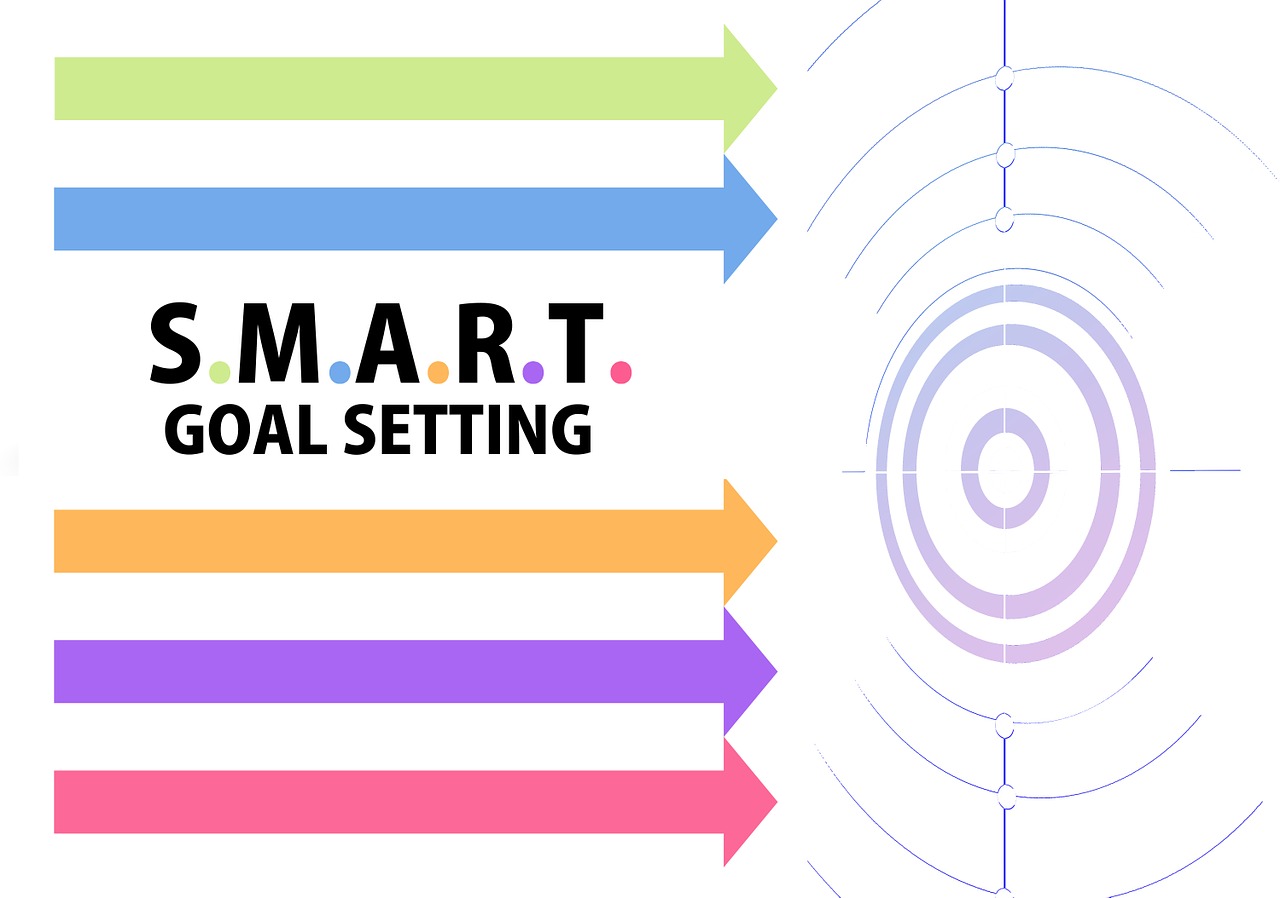How to Set SMART Goals

One of the best ways to guarantee goal-setting success
is to ensure that each of your goals or resolutions fits the SMART formula. SMART is an acronym that stands for Specific, Measurable, Attainable, Realistic and Time-based. When your goals have these characteristics, you are much likelier to achieve them.
Enhancing Your Goal Setting Success
Setting short-term, medium-term, and long-term goals for yourself is a key to success. If there are things that you want to achieve or ways that you want to grow, setting goals as stepping stones is an important part of getting there.
Follow this approach to set S.M.A.R.T. goals:
SMART goals are SPECIFIC. This means that your goal should be numbers-based, or have a specific goal in mind. A smart goal maybe "Go from 165 pounds to 155 pounds," or "Touch my toes without bending my knees." Both are specific goals without any vague phrasing left open to interpretation.
The more specific your goal is, the clearer it will be when you finally achieve it.
Break your large goals into smaller short-term and medium-term goals, with each smaller goal phrased just as specifically in order for them to be attainable and achievable.
SMART goals are MEASURABLE. This is another reason why smart goals are numbers based. To know whether or not you achieved a goal, you must be able to measure your progress. SMART goals are goals that you can track and measure that have a clear end or point of attainment.
- Being able to measure your progress is really important in goal setting and goal achievement. It helps you determine whether or not you're moving in the right direction since you can clearly track and measure both positive and negative progress along the way.
SMART goals are ATTAINABLE. Smart goals are goals that you can actually attain. They're not extremely farfetched goals like "Lose 100 pounds in 90 days," because if there's no way to achieve the goal, why set it?
- SMART goals are goals that you are physically and mentally capable of achieving.
SMART goals are REALISTIC and RELEVANT. SMART goals are not only attainable, but they are realistically attainable and relevant to your values. They are a combination between a specific achievement that you can reach and a time frame that realistically coordinates with that achievement.
• For example, a SMART goal would be "Lose 10 pounds in 90 days," for a healthy weight loss of 3 to 4 pounds per month, rather than "Lose 10 pounds this week."
SMART goals are TIME-DRIVEN or TIME-BASED. Smart goals have time frames, and realistic ones at that. When you put a realistic time frame on your goal, it gives you something to work for. To simply "Lose 10 pounds," without a time frame lacks motivation.
• For example, "Lose 10 pounds by my birthday" has a realistic time frame (assuming your birthday is not tomorrow!) that gives you something to work for and a date for completion.
Bottom Line?
Setting SMART goals is a proven way to increase the likelihood of setting and achieving goals for what you want in life. By setting goals that are Specific, Measurable, Attainable, Realistic, and Time-based, you can achieve the success you seek!
Source
https://en.wikipedia.org/wiki/SMART_criteria
Image by Gerd Altmann from Pixabay
Source of plagiarism
There is reasonable evidence that this article has been spun, rewritten, or reworded. Posting such content is considered plagiarism and/or fraud. Fraud is discouraged by the community and may result in the account being Blacklisted.
Guide: Why and How People Abuse and Plagiarise
If you believe this comment is in error, please contact us in #appeals in Discord.
The definition of SMART goals is available on many sources both online, in books and seminar/workshops. The goal of the post was to provide this definition to the CTPTalk audience. A reference source is being added to the post outlining the history and origin of SMART goals.